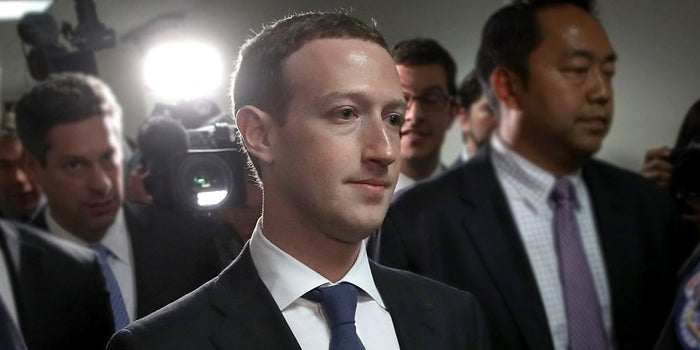Author: Hayden Field / Source: Entrepreneur
How the Facebook co-founder and CEO likely prepared, what he’ll say and what it could mean for future regulations.

“It was my mistake, and I’m sorry.” That’s straight out of Mark Zuckerberg’s testimony for his Congressional hearings, and it reflects Facebook’s head-on approach to dealing with a recent deluge of backlash aimed at the company. All eyes are on Zuckerberg because these hearings — and the potential regulations that could stem from them — are historical in the evolution of the data economy. The outcome could also mean historical changes in the tech landscape itself.
“Regulation-free growth is coming to an end, and entrepreneurs might need to adapt,” says Denise Spatafora, a business strategist/consultant and founder of Be Clear, Inc.
Zuckerberg will testify before the Senate on Tuesday and the House of Representatives on Wednesday. In one section of his testimony, he’ll address Russian interference in the 2016 election and the estimate that 126 million people may have been impacted by a “disinformation campaign” run by the Internet Research Agency (IRA). He’ll also devote a section to Cambridge Analytica and misuse of user data, as Facebook estimates the organization harvested data from 87 million Facebook users.
Regardless of the hearing outcomes, Facebook has “already paid a price of tens of billions of dollars in market cap,” says Bradley Tusk, CEO of Tusk Ventures. He estimates that Zuckerberg is “worth about $5 billion less than he was a couple of weeks ago.”
Although Zuckerberg maintains voting control of the company, some are calling for Zuckerberg’s resignation from one or both of his posts as CEO and chairman of the board. Among them are New York City Comptroller Scott Stringer, who oversees the city’s pension fund that currently holds nearly $1 billion in Facebook stock.
Here’s how Zuckerberg likely prepared for the hearings, how the company designed communication and what this could mean for the future.
Behind the scenes
The process likely started with Facebook’s own private, internal assessment of the facts and what happened, Spatafora says. That means a deep dive into questions such as: Where was the breakdown? What did we miss? What’s working? What’s not working? How does this affect the general mood and culture of the company? Since Facebook is both public and multidimensional, the next logical step would be conferring with company lawyers before making any significant moves. After that, the company would probably turn to damage control…
Peter Bordes Jr
Founder & Managing Partner Trajectory Ventures. Lifetime entrepreneur, CEO, Board Member, mentor, advisor and investor.
Obsessed with the infinite realm of possibility in disruptive innovation driving global digital transformation in technology, cloud-based infrastructure, artificial intelligence, data, DevOps, fintech, robotics, aerospace, blockchain and digital media and advertising.

